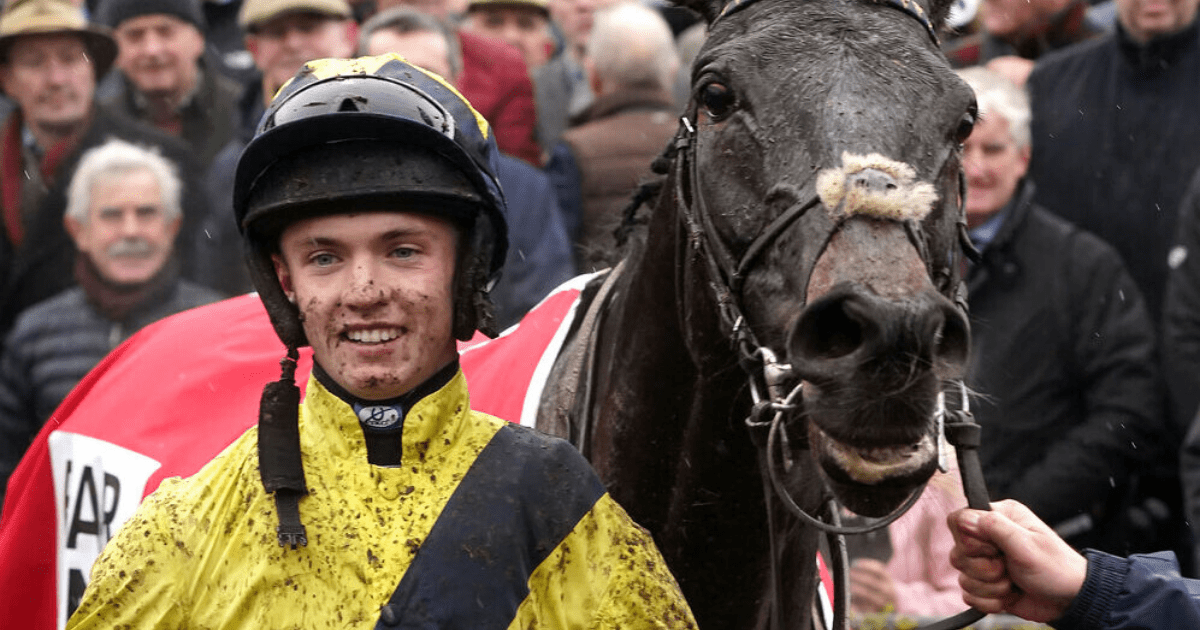Big Loss for Punters
Trainer Barry Connell has shattered the hopes of many by confirming that Marine Nationale, a huge Cheltenham Festival favourite, will not be competing in the Arkle. This news comes on the heels of Constitution Hill also pulling out of this year's competition, leaving a major void in the star power of day one's events.
Disappointing Turn of Events
Marine Nationale, previously an odds-on favorite for the two-mile novice chase, suffered a setback at the Dublin Racing Festival last month. Despite hopes of a recovery with better weather conditions, a 'suspensory strain' has dashed any chances of the seven-year-old gelding participating in the major spring festivals this year.
Punters React
Fans of the sport expressed their devastation on social media, with one lamenting, "So that's two of the favourites for the big races already out and there's over a week to go. I can hear ante-post bets being torn up." Another dubbed it "the darkest day in history for ante-post punters."
New Favorites Emerge
With Marine Nationale out of the running, Gordon Elliott's Found A Fifty and Willie Mullins' Il Etait Temps are now joint 7-2 favorites for the Arkle. The field has become more competitive, with Mullins' Gaelic Warrior and other contenders seeing their odds adjusted in light of the withdrawal.
Trainer's Disappointment
Connell expressed his disappointment at the turn of events, stating, "It will repair itself but he needs six weeks so he's going to miss Cheltenham and Punchestown." The setback has left many wondering what could have been for Marine Nationale at this year's Cheltenham Festival.
Frequently Asked Questions
How important is a racing horse’s lineage?
Pedigree is a good indicator of potential but it’s not the only factor that determines a horse’s performance. A horse’s lineage may suggest an inherited aptitude for speed or endurance, but training, health, and temperament are also influential factors. A horse’s natural ability can be maximized by good training, and it may even outperform horses with impressive pedigrees.
At what age should a horse start race training?
Horses can start their basic training as yearlings, but most begin their more rigorous race training and conditioning when they are around two years old. When their bodies are mature and able to handle the stress of the track, but still young enough to learn. The exact timing depends on the horse’s maturity and temperament.
Can you train a racing horse on any type of track?
While initial training can occur on a variety of tracks, specific race training often requires facilities that simulate the conditions the horse will face in competition. This can include tracks of the right size with the exact same type and surface that the horse will race upon. It is important to use the right track in order to condition the horse correctly and familiarize them with the particular racing environment.
How do I condition a horse for racing?
Conditioning a racehorse is a gradual process that includes a combination of long, slow distance work to build stamina and shorter, faster workouts to develop speed. A carefully designed regimen of exercise must gradually strengthen the horse’s cardiovascular, muscular, and skeletal system. This is done to mimic the stress of racing, without injuring or overstressing it.
What precautions should be taken to ensure the health of a racehorse when training it?
Meticulous attention to a racehorse’s health is vital in preventing injury and illness. Regular veterinary checks, vaccinations and dental care are important. The horse should also be monitored for signs of discomfort, fatigue or strain. A well-planned training program that allows for a gradual increase in intensity will help reduce the risk of musculoskeletal injury.
What role does a jockey play in the training of a racehorse?
Jockeys have a crucial role to play in the training of racehorses. They ride horses and provide feedback about the horse’s performance. But they also teach the horse racing tactics like pacing, position, and how to respond to commands. A good jockey will become familiar with the horse’s strengths as well as its weaknesses. This is vital for race preparation.
Statistics
- The Injury Database from The Jockey Club reports that synthetic racing surfaces have a lower horse fatality rate than dirt tracks, with a statistically significant difference of 1.2 fatalities per thousand starts on synthetics compared to 2.0 on dirt tracks.
- The majority of racehorses in training are subject to an exercise regimen that includes being ridden six days a week.
- The average cost to train a thoroughbred racehorse for one year can exceed $50,000, accounting for expenses related to training, boarding, and veterinary care.
- Approximately 70% of a racehorse’s diet consists of forage, with the remainder made up of grains and supplements to meet their high-calorie needs.
- Gastrointestinal issues affect up to 90% of racehorses during their training, emphasizing the need for careful dietary management.
- Statistically, less than 1% of thoroughbred foals born each year will go on to win a stakes race.
External Links
theridinginstructor.net
thoroughbred-racing.net
- Thoroughbred Race Training
horseracing.com
jockeyclub.com
bloodhorse.com
grayson-jockeyclub.org
How To
How to Create an Efficacious Training Schedule for Racehorses
The best training schedules for racehorses should balance intense exercise with rest. To build fitness, incorporate a combination of walking, jogging, galloping, or breezing exercises throughout the entire week. Rest days are important for mental and muscle recovery. Season training cycles according to the racing calendar of the horse, tapering before a big race.

